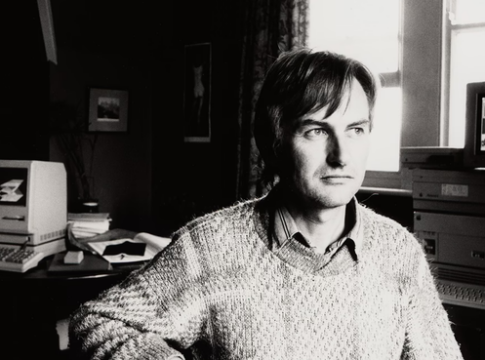An icon in the shape of an angle pointing down.
Courtesy of Barbara Corcoran
- Corcoran’s mother, Florence, was diagnosed with Alzheimer’s in her late 60s.
- Corcoran paid for all her care and shared hands-on caregiving with her nine siblings.
- Corcoran was terrified she had the disease until she saw a doctor earlier this year.
For the past 12 years, as Barbara Corcoran appeared on the television show “Shark Tank” and invested in more than 100 businesses, she lived with a secret fear: that she, like her mother Florence, would develop Alzheimer’s disease.
About eight months ago, Corcoran finally saw a doctor to evaluate her own risk for dementia. She left with a clean bill of health and a newly discovered ability to talk about her time as Florence’s caregiver.
“It made me feel free to put my shoulders down and talk about it,” Corcoran tells Business Insider. “The burden, for the first time, was lifted.”
From the systems queen to forgetting loved ones
Corcoran is the second-oldest of 10 siblings who grew up in a two-bedroom house in Edgewater, New Jersey. There, Corcoran loved watching the systems at Florence created to keep the home and the children organized.
“I was admiring her with the systems,” Corcoran said. Later, the investor became “very systematized myself,” which contributed to her business success, she said.
Corcoran started worrying about her mother’s mind when Florence — in her mid-60s — couldn’t remember the name of her lifelong friend who was visiting.
“That was the first tip-off,” Corcoran said.
A year later, Florence started leaving the kettle on in her home. Corcoran and her siblings realized it was no longer safe for their mother to be alone. Corcoran paid one of her sisters — who lived nearest Florence — to quit her job and become their mother’s caretaker.
Despite having more support, Florence’s symptoms continued to progress. On a visit to Brooklyn, she didn’t recognize her son. At that moment, Corcoran knew that her mom had Alzheimer’s. A formal diagnosis came soon after, before Florence turned 70.
Corcoran paid for care, while her siblings all helped
At first, Florence was very accepting of her dementia.
“She was happy as a bee. She would say, ‘Oh well,'” Corcoran recalls. “I admired her so deeply for making the adjustment. She was a pleasure to be with.”
With time, however, Corcoran noticed that her mother was restless and agitated. She didn’t realize the personality shift was a symptom of agitation in Alzheimer’s dementia. Still, Corcoran began to withdraw.
“You naturally distance yourself,” she said. “It’s not the mother you want to love. It’s not the mother you trusted and grew to love.”
After Florence’s diagnosis, the siblings had a meeting where they assigned themselves roles based on their strengths. A brother who is particularly empathetic was in charge of nurturing Florence, even getting her a baby doll to care for. A sister in healthcare took over medical decisions. And Corcoran, the most financially successful of the family, paid.
“I paid for everything: the house, the doctors. I paid for what my siblings needed to visit her. I was the bank,” Corcoran said. Those financial resources alleviated a major stressor for the family.
“Thank God I had the means to pay,” Corcoran said.
Corcoran recently shared advice with another daughter
At that first meeting, the siblings “decided from the get-go to keep her home as long as we could, hopefully forever,” Corcoran said. But years later, it became “almost impossible to meet her needs.” When the family moved her into a nursing home facility, Florence was angry and bitter despite the fact that one of Corcoran’s sisters ran the facility.
“She turned into a lion,” Corcoran said. “She kept saying, ‘How could you do this to me? I did everything for you.’ I had never seen my mother bitter about anything. It hurt us to see our loving mom so angry.”
Today, Corcoran is 75, well past the age when her mother began having symptoms of Alzheimer’s. Now that she’s not worried about developing the disease herself, she’s eager to give advice.
Recently, she saw a woman in an elevator become frustrated with her own mother, who appeared to be forgetful. Corcoran followed the woman down the hall and “gave her a piece of my mind, nicely.”
She told the daughter, “You’ve got to step into her world. Don’t take her dignity. Get in her world because she can’t get in yours.”
Florence died 12 years ago — after nine years of living with the disease — but Cocoran still remembers how sad and difficult caring for her was. She hopes that other people caring for a loved one reach out for help in any way they can.
“Join hands with other people,” she said. “I can’t imagine having cared for my mother by myself, even with all my resources.”


